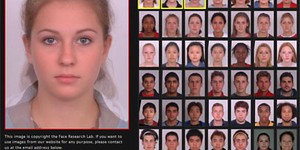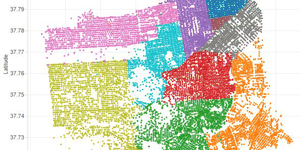High School, Measure Human Actions Science Projects (17 results)
Measure changes in how humans act. Collect data about whether volunteers are motivated, the time it takes them to do a task, or how well they do a task.
|
Think back to the last time you went to the grocery store. How well can you describe the person who was ahead of you in the check-out line? How many details do you remember about the person? How accurate do you think your memory is? Here is a project to investigate the accuracy of people's observations during everyday life.
Read more
Featured
Have you heard that garlic powder is supposed to inhibit the growth of bacteria? Which do you think would make a better disinfectant: a solution of garlic powder or a solution of bleach? This project shows you a straightforward way to compare the effectiveness of different disinfectants (or other antimicrobial agents), by measuring zones of inhibition on a culture plate.
Read more
Although some of us may not like to admit it, everyone's afraid of something. Big dogs, thunderstorms, public speaking, heights: what are you most afraid of? Do you think grown-ups have the same fears as kids? How about first-graders and sixth-graders? Find out for yourself by doing this project.
Read more
New
Remembering to take medicine at the right time can be hard, especially if you need to take multiple medications at different times of day. It might not be a big deal if you forget to take your daily multivitamin, but for some people, forgetting to take medication at the right time can be dangerous. What if you had a device that could not only set off an alarm at the right time, but also automatically dispense the right pills for you? In this project, you will build an automatic medicine…
Read more
Psychologists have long studied why people find certain faces more attractive than others. One interesting method used in this area of research is mixing several faces together to make a composite face. The composite face averages the input faces, so that small, non-symmetric features tend to get lost. In this human behavior science project, you will use an online tool to make composite faces, and determine how they compare to real faces in perceived attractiveness.
Read more
Have you ever wondered how virtual reality works? With virtual reality, people feel like they are in one place while knowing they are somewhere else. In this project, you will show the same phenomenon on a smaller scale. You will use the McGurk effect to show how you can hear one sound, while knowing a different sound is physically there. First, you will produce such an experience using audio and video, and then measure the strength of the phenomenon.
Read more
You may have read about criminal cases where innocent people have been wrongly convicted of a crime. Sometimes, modern DNA analysis techniques have provided the evidence to exonerate these innocent people. In many cases, mistaken identification by eyewitnesses provided strong evidence for the original conviction. How can prosecutors and defense attorneys make sure that photo lineup procedures used to identify criminal suspects are unbiased? This project shows you how to conduct an objective…
Read more
New
If someone asks you to draw a picture of a doctor, lawyer, or engineer, what first pops into your mind? The race and gender of the person you imagine might be shaped by your personal life experiences, such as whether you have family members in those professions, or what representations of them you have seen on TV or online. What do you think will happen if you ask an artificial intelligence (AI) program to generate the picture instead? Will pictures generated by AI reflect the true real-world…
Read more
Many medicines come in bottles with special child-proof caps so that small children can't accidentally open the bottle and eat the pills. To a small child who can't read the label, the pills might look just like candy. What cues do we use to tell the difference between medicine and candy? At what age can we tell them apart? This project can show you how to find out.
Read more
This project challenges you to think like a politician (and a scientist!), and try to ascertain what factors are most important as individuals make their decision on how to vote. For example, is it what is being said, or who is saying it?
Read more
How do you feel when a friend comes too close to you? How far away or close do you think is necessary to have a conversation with someone? The answers to these questions are dependent upon the size of your personal space. Some people like to be within a foot of each other when having a conversation and others feel that being 3 feet apart is still just a little too close for comfort.
Personal space is defined as the protective area surrounding a person's body (not necessarily spherical in…
Read more
This project asks the question "How do friendship groups change over time?" The results may support inferences about how "people skills" develop. What types of changes would you expect to see? Do you expect friendship groups to grow larger over time? Do you expect that individuals will belong to more, less or about the same number of friendship groups as they get older? Do you think there will be more or less exclusivity among groups (and how would you measure such a concept)? Do you…
Read more
Big data is one of the most promising and hyped trends in technology and business today. Big data refers to data-analysis jobs that are too large and complex to be analyzed by applications that are traditionally used. Big data sets hold valuable information. Many publicly available data sets have the potential to improve our everyday lives by giving us insight into the things we care about. How well-equipped are we to extract information from the data? Visualizations and aggregations (or…
Read more
|
Explore Our Science Videos
How to Build an ArtBot
Mold Hard Boiled Eggs
Build A River Model – STEM Activity












